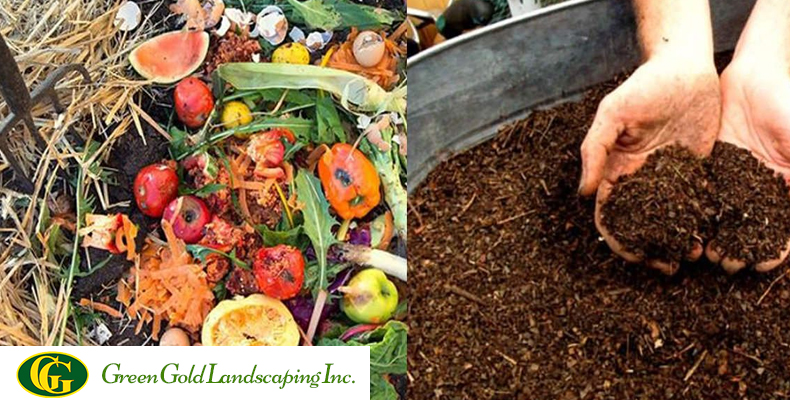26 Apr
Benefits of Compost on Lawn
Posted By Ervin in Gardening
For having lush landscapes – adding compost to your lawn is essential. Anyone who intends to support the radiant health of your landscapes – will need to generate compost for optimal organic fertilization. Most of us have an approach to see the compost as a way to control the kitchen and household waste. Gardeners and landscaping experts love this fertilizer because of its help to build nutrient-rich soil and a healthy garden.
What exactly is Compost?
By leaving alone the organic materials like the kitchen and other garden wastes, make them decompose and form a substance full of nutrients. This compost is beneficial for the growth of plants in your lawn. It is a simple process to learn.
The Materials mostly used for a Composting Project are :
1. Kitchen Waste :
- Peelings of Vegetables and Fruits
- Eggshells
- Tea bags and Coffee grounds
2. Household Waste :
- Paper Items in the House
- Cardboard Boxes
- Coffee filters
- Paper bags
3. Yard Waste :
- Grass Clippings
- Dead and raked leaves
- Dead plants, but do not use diseased plants
Do not use items like meat, pet wastes, bones, oils and dairy products for composting.
How to Make a Compost :
You can make compost by yourself in the home. The essential components needed for the compost preparation are available in your kitchen and house. Pile up the waste in a dump and allow the materials to decompose. Aeration is much necessary for the formation of the compost. Take time to turn the pile of scraps up and down, allowing the contents to decay faster. Add water if necessary, and the pile should be damp only slightly. Once the pile is dark and crumbly and you cannot recognize the materials in it, then you can know that the compost is ready to be used as fertilizer for the lawn.
Benefits of Adding Compost to your Lawn
1. Improves the Soil Structure :
The weak soil structure is the primary blame when the plants are not growing up to the mark. If the soil is hard as a rock, the roots of the plants have difficulty in getting underground for water and nutrients. Lack of depth for the roots may result in the death of the trees. Compost helps in making the soil loose. The proteins and nutrients in the compost help in keeping the soil particles together. Land with a good structure is very crumbly to touch and helps the air, water, and nutrients to enter and move freely. The availability of plenty of air and water helps the roots to develop more. Compost controls the pH of the soil allowing the plants to grow healthier.
2. Increase the Nutrients in the Soil :
When the organic compost breaks into particles, produces the best nutrients needed for the plants. Compost is a place for the microorganisms, bacteria, earthworms, and beetles. These are harmless to the plants and make the soil fertile. All these organisms are useful for all the plants. The group of organisms is mostly referred to as soil food web. Compost acts as food for these human-friendly creatures. Manure helps in releasing macronutrients like nitrogen, phosphorus, and potassium. Micronutrients like manganese, copper, iron, and zinc are also released by the fertilizer used.
3. Uses Less Water and Preventing Water Loss :
Compost makes the soil fertile, and the lush land has the capability of retaining the water for a long time. The compost prevents the water from incorporating. With the introduction of fertilizer to the massive areas, the soil can keep the water that is coming and helps the plants to utilize more water. Recent researches also suggest that adding compost to sandy soil can increase moisture dispersion by allowing water to move laterally from its point of application. As the land or soil hold the water, the erosion is also reduced. The water is fully utilized and thus reducing the wastage of water.
4. Fewer Diseases in the Plants :
Research shows that soil with composts tends to produce plants with fewer disease problems. Manure reduces the risk of pests in the lawn and controls the diseases. The microorganisms present in the compost, help in decomposing the waste and other chemicals present, thus not allowing the chemical residues to enter the water bodies. We can also see that fertilizer is beneficial to the environment.
5. Sustains Beneficial Organisms in the Soil :
The beneficial microorganisms in the soil improve the nitrogen percentage in the soil and thereby helping the plants to grow healthier. Compost helps in feeding these microorganisms in the soil.
Conclusion
Compost is the essential ingredient for your lawn. Always make it a point to use only natural materials to make compost. If you have any questions regarding composting, our professionals at Green Gold Landscaping are ready to assist you. Call us at 914-882-5459 for more details.








